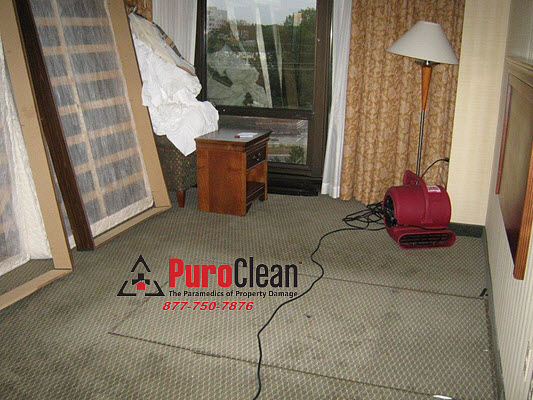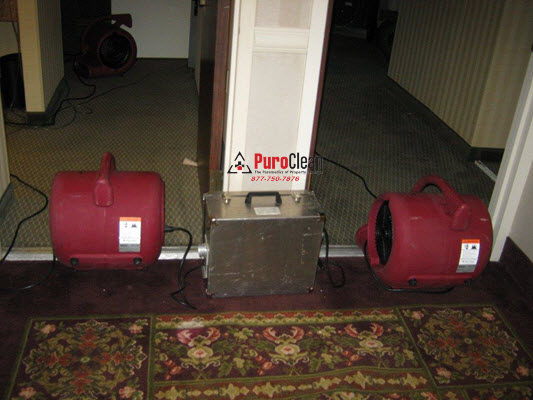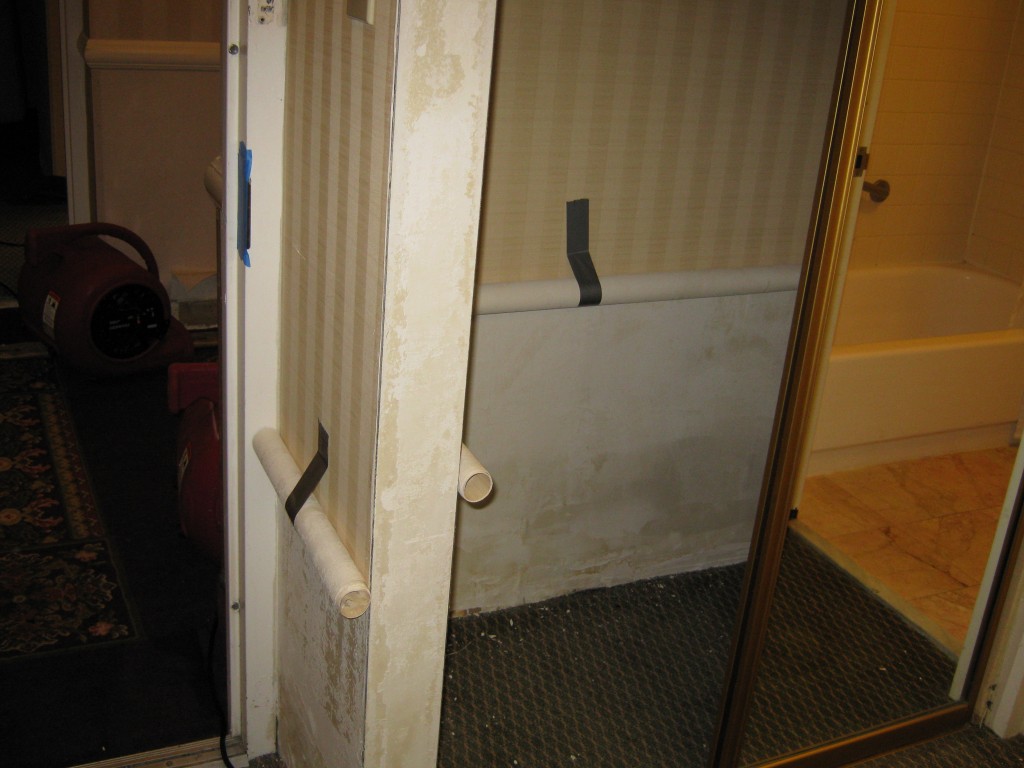COMMERCIAL WATER DAMAGE RESTORATION
Salvaging after water damage and keeping our reputation clean

An article in Claims Journal discusses “drying formulas” and the “growing trend in unnecessary demolition.”
The drying formulas provide a baseline from which to calculate the amount of equipment needed to quickly remediate water damage in accordance with the IICRC drying standards. Of course, individual building dry-out needs vary. Drywall will dry, but at a different rate from plaster and lath walls. Plaster and lath dry at a different rate than cementaceous walls.
So how do you know what to save and what to demo?
That’s determined by the kind of water that caused the damage, whether it is clean or contaminated.
And the skill and training of the restoration professional on the job.
The article goes on to discuss how a “new trend” in the restoration industry practiced by “unscrupulous restoration companies.” These companies remove unnecessary drywall, flooring or cabinetry during demolition rather than practicing techniques to salvage these materials. “The reconstruction of the unnecessary demolition is costing the insurance industry a lot of money . . . for every dollar of demolition that takes place, it costs (insurance) carriers eight to 10 dollars in reconstruction.”
So, why is this such an issue? And, why should it matter?
Simply because unnecessary costs to the insurance industry cause everyone’s premiums to increase.
Here at PuroClean Emergency Recovery Services, we have always used best practices for salvage, as long as salvaging doesn’t compromise the health and safety of those in the building under question.
Take for example a job we did for a Cherry Hill hotel several years ago.
Late in the afternoon, one of the hotel’s maintenance men accidentally knocked a sprinkler head on the ceiling in one of the rooms. The accident caused all the rest of the sprinklers on the floor to go off.
The resulting flood damaged 5 floors of the hotel and put about 30 rooms in the hotel out of commission.

The issues with this loss were the same as any other commercial water loss:
1. drying the water damage completely before bacteria and mold grows,
2. and drying it quickly so that the hotel had limited loss of business.
This was a Category I “clean water loss.” The water came from an uncontaminated source, a sprinkler system. Of course, it could be argued that the water soaking through the materials to the floors below had become contaminated. And, some restoration companies might have used this fact as an argument to support demolition. However, we were given strict instructions from the property manager to save everything. And for good reason! As in most hotels, the whole building was decorated according to an interior design plan. That meant the carpet on the floor as well as the vinyl wall paper lining the walls of the halls and all the rooms matched. While it might have been easier to dry the building if we had removed the carpet and wallpaper, the hotel would cost tens of thousands of dollars to replace. And, it would have taken many months to redecorate the whole facility to bring it back to class one status. There’s only one problem: vinyl wall paper prevents walls from drying!

Our solution? We removed the vinyl wallpaper from the sections of the wall needing drying. We saved it by rolling it up and kept it in place undamaged. That way it could be quickly reattached.
Because we sanitized everything thoroughly before the drying process had even begun, the hotel manager had no worries about contamination from bacterial or mold growth. As soon as we completed the drying process, the maintenance crew simply reattached the vinyl wall paper. All they had to do was unroll it and re-glue it in place.
Our solution saved this hotel thousands of dollars because they didn’t have to redecorate the facility with new carpet or wallpaper! And, because we were able to complete the drying process in a matter of days, the rooms were returned to use by the hotel guests fast.
Call Us Now at 877-750-7876
PuroClean Emergency Recovery Services skills in salvaging after water damage have earned us our reputation as The Paramedics of Property Damage®. It’s a name property managers can trust in the Greater Philadelphia and South Jersey region to restore your commercial property from water damage while saving you money!
